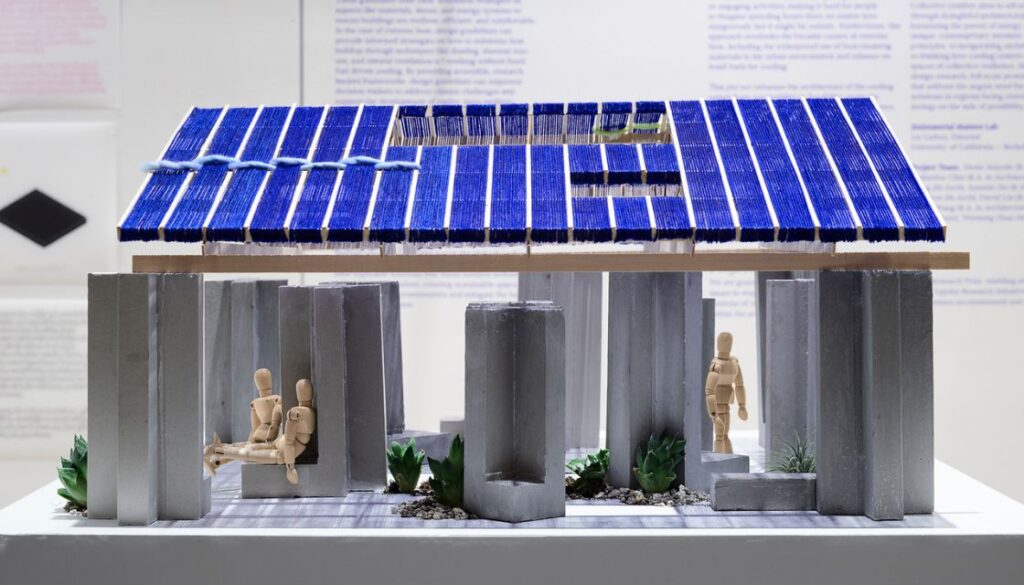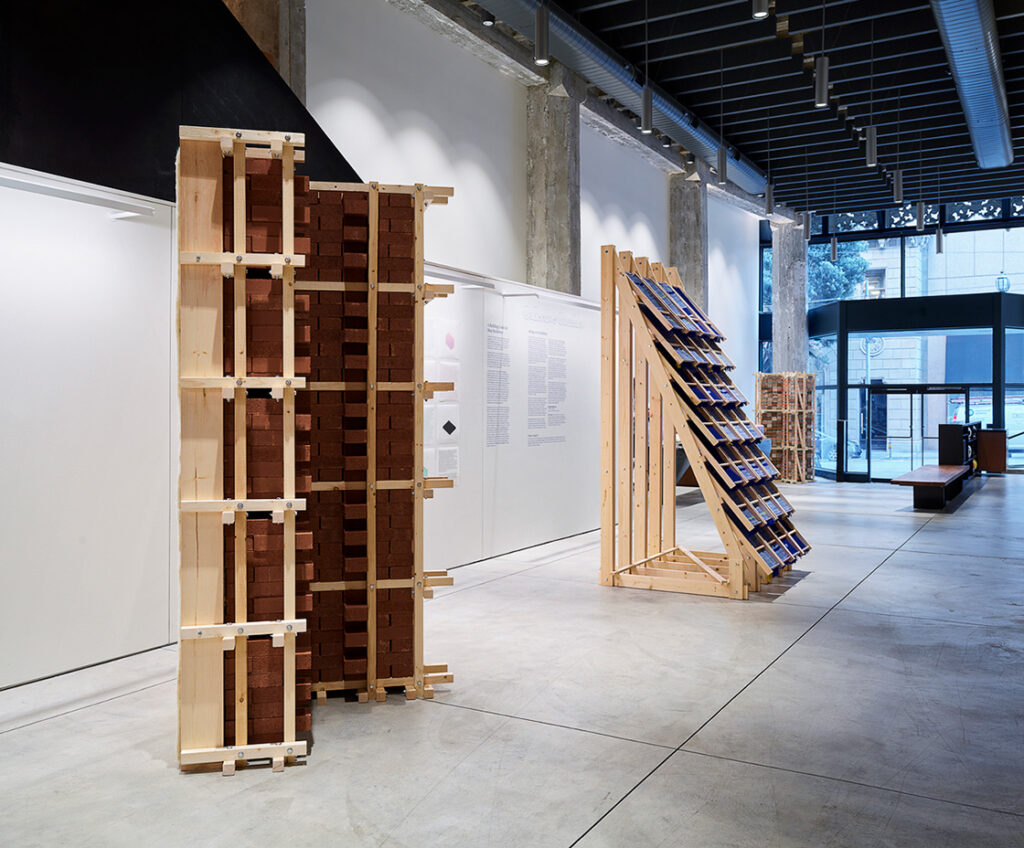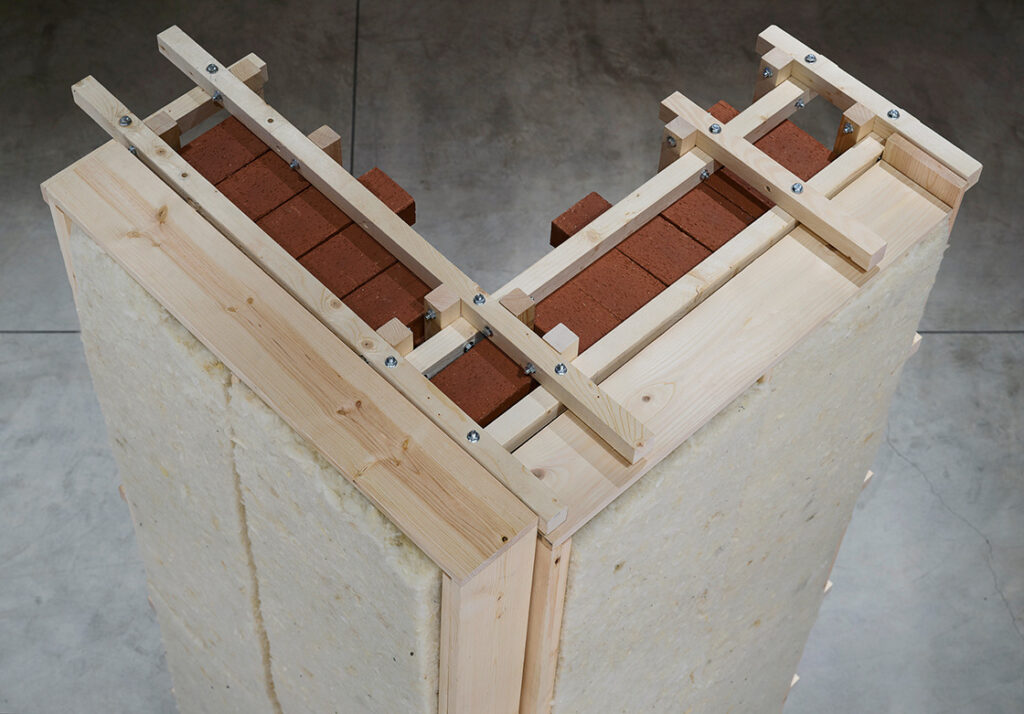Exhibition by Liz Gálvez and the (Im)material Matters Lab highlights climate resilience
Collective Comfort: Airing on Possibilities examines climate resilience in desert cities, offering architects, city planners, and community members fresh perspectives on urban cooling.

As global temperatures rise, Collective Comfort: Airing on Possibilities responds to climate challenges with sustainable design concepts engaging both community and environment.
The (Im)material Matters Lab, founded at UC Berkeley by Assistant Professor of Architecture Liz Gálvez, examines the interface between architecture, theory, and environmentalism through a reexamination of building technologies for a rapidly changing world. Aligned with the College of Environmental Design’s commitment to climate change research, the exhibition’s four key installations showcase an ongoing dialogue between architecture, material research, and resilience planning, recognizing that strategic allegiances can promote equitable solutions to climate challenges.
The first installation, Comfort, Collectively, envisions a future where cooling centers are reimagined through collective comfort as spaces that prioritize shared thermal pleasures and the joy of gathering as tools for community resilience. Here, comfort transcends austere metrics, embracing the richness of thermal relationships —where thermally diverse materials create dynamic interiors that respond to and engage the body.
The framework for the second installation, A Building Code for Heat Resilience, proposes new design guidelines for resilient hub buildings, integrating culturally sensitive programming with thermally massive materials and building physics principles tailored to desert climates.

An Urban Code for Heat Resilience, a contribution by Dalia Munenzon, professor of urban design at the University of Houston, expands from the building scale to the urban environment and proposes new design guidelines for shade equity and social infrastructure. Integrating community-driven cooling solutions and policies, it ensures vulnerable communities have accessible shaded spaces and heat relief resources.
In the last installation, Collective Comfort Architecture Studio, Berkeley Architecture graduate students were asked to create a series of “comfort artifacts” to develop new “comfort concepts.” Then they developed their thermal ideas through the design of a building intended to embody and support Collective Comfort.
Gálvez says, “There is a profound intelligence in traditional material thinking that we can reintegrate into our contemporary building and urban cultures. By reducing our reliance on fossil fuels and reimagining resilient cooling strategies, we can expand the role of architecture in fostering collective resilience, especially for vulnerable communities confronting extreme weather risks. Enriching spaces that bring people together can serve as soft infrastructures, proving to be just as powerful as traditional hard infrastructures.”

The team was composed of the following undergraduate and graduate students in the Department of Architecture: Deniz Atayolu, Catherine Chiu, Annette Ho, David Lin, Chloe Wang, Sarah Zhang, Xinhui Harper Dong (MArch), Kyra Johnston (MArch), and Wenteng Zhao (MArch).
Assistant Professor of Cooperative Extension Paul Mayencourt offered input on wood construction. Gálvez also worked with the University of Houston’s Urban Climate Adaptation Lab, directed by Munenzon. Salmaan Craig, associate professor of architecture and urban design at UCLA, offered input on building physics and Melissa Guardaro, assistant research professor at Arizona State University, offered social infrastructure advice.
Collective Comfort: Airing on Possibilities is on view until February 5, 2025, at The Center for Architecture + Design, 140 Sutter Street, San Francisco.